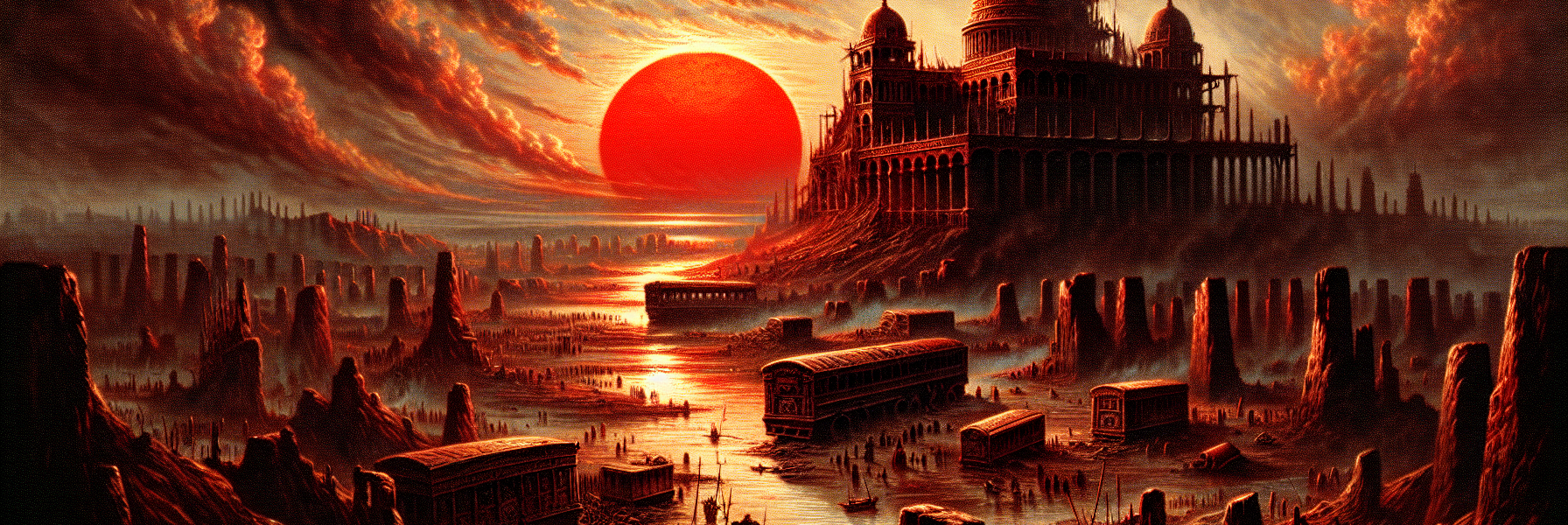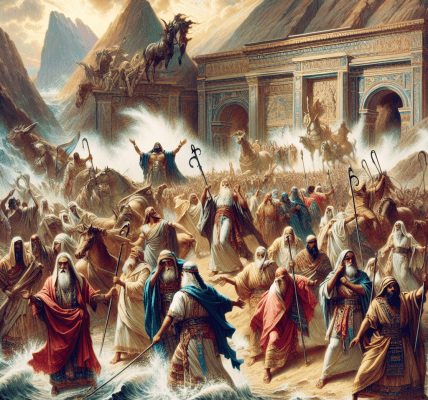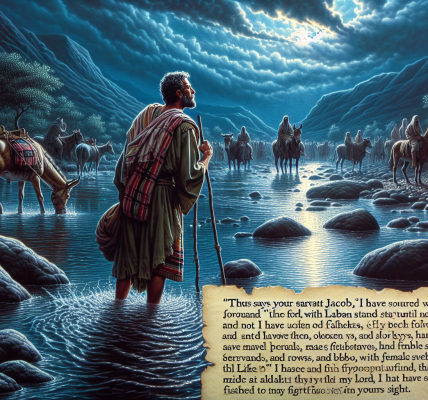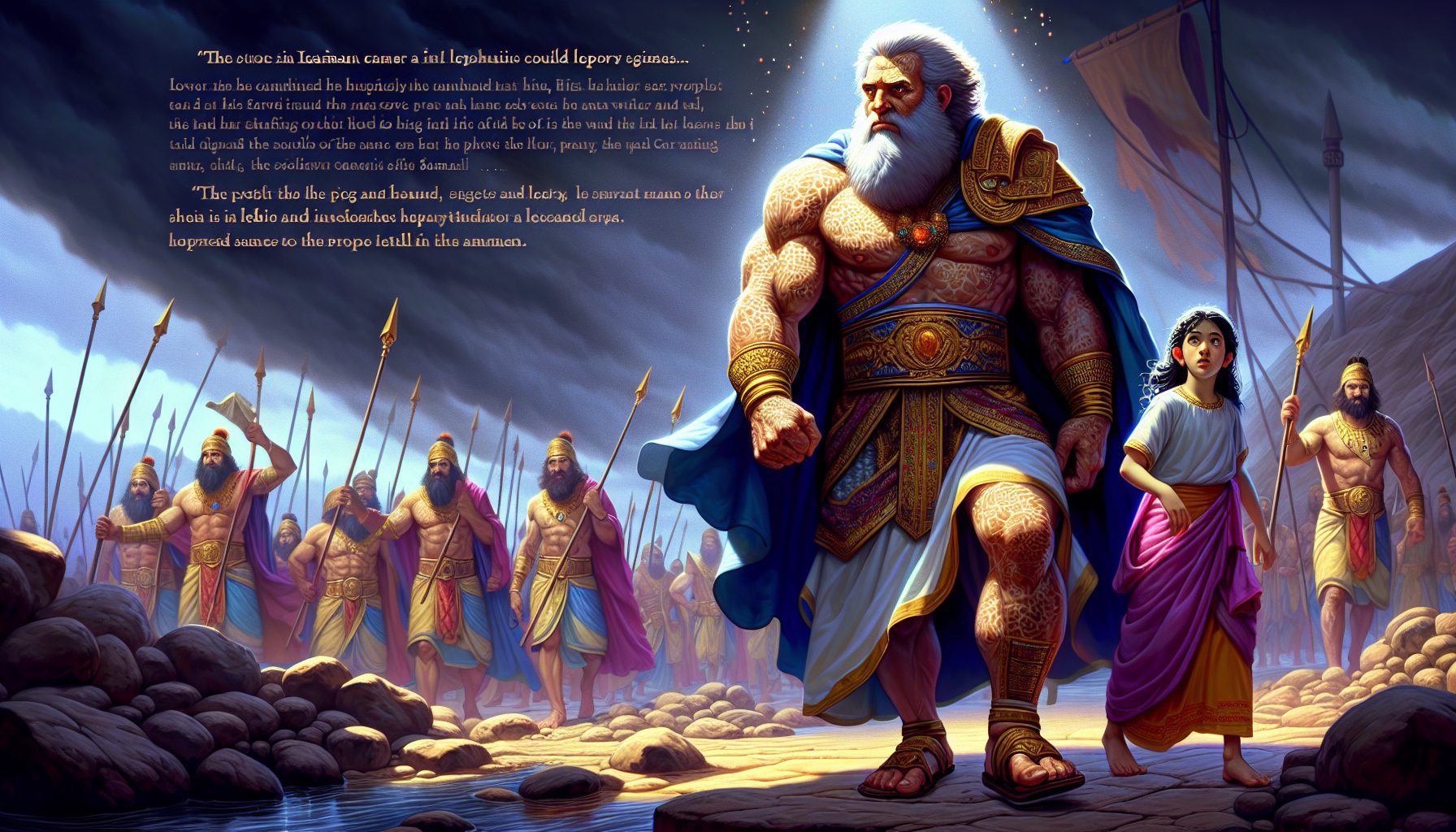**The Weeping City: A Story of Lamentations 2**
The sun hung low over Jerusalem, a blood-red orb sinking behind the ruins of what was once the glory of Zion. The air was thick with the stench of smoke and decay, the echoes of wailing rising from the streets like a mournful hymn. The Lord had cast down His own dwelling, and the city lay in ruins, a shadow of its former splendor.
Once, the Temple had stood as a beacon of divine presence, its golden pinnacles catching the first light of dawn. Now, its walls were shattered, its altars overturned. The sacred vessels, once gleaming in the light of the menorah, had been carried away by invaders. The Ark of the Covenant, the very throne of God’s earthly presence, was gone—whether hidden, destroyed, or stolen, no one knew. The Lord had withdrawn His favor like a bridegroom turning away from his bride, and Jerusalem was left desolate.
In the streets, mothers clutched their hollow stomachs, their children crying out for bread that did not exist. The siege had been merciless—days turned to weeks, weeks to months, until the people gnawed on leather and scraped the earth for scraps. The little ones, their eyes sunken with hunger, staggered like drunkards before collapsing in the dust. The prophets who had once proclaimed peace now wandered in confusion, their visions unfulfilled, their mouths filled with ashes instead of divine words.
The elders, the pillars of wisdom, sat in silence upon the ground, their heads bowed low, their robes torn in grief. They no longer lifted their voices in counsel, for the Lord had poured out His wrath like fire, consuming without mercy. The young men, who had once stood strong in battle, now lay slain in the streets, their strength undone by the sword of the enemy. The virgins of Jerusalem, once dancing in joyful procession, now dragged their feet through the rubble, their songs replaced by sobs.
The enemy had come like a storm, their chariots thundering through the gates, their swords glinting under a sun that seemed to mock the city’s suffering. The Lord had summoned them as His instrument of judgment, stripping away the defenses of Zion as a man strips the bark from a tree. The mighty walls, which had stood unshaken for generations, were broken like clay pots. The watchtowers, where sentinels once kept vigil, now lay in heaps of stone.
And where was the Lord in all of this? Had He not promised to protect His people? Had He not sworn by His own name to be their refuge? Yet now, He had become like an enemy, His right hand raised against them. The feasts and Sabbaths were forgotten, the priests groaned in the ruins of the sanctuary, and the prophets received no visions—only silence.
In the darkness of a crumbling house, a woman named Miriam cradled her lifeless child, her tears falling onto his still face. She had seen the horrors—the starvation, the slaughter, the shame. She had watched as the enemy dragged away the young and strong, leaving behind only the broken and the dying. She had heard the mocking laughter of the invaders as they defiled the holy places.
Yet even in her grief, she whispered the words of the ancients: *”The steadfast love of the Lord never ceases; His mercies never come to an end.”* But where was mercy now? Where was love? The Lord had covered Himself in a cloud, and no prayer could pass through.
The city wept without comfort, for its punishment was great—greater even than the punishment of Sodom, which had been overthrown in a moment. Jerusalem’s suffering was prolonged, her wounds left open, her shame exposed before the nations.
And so the people sat in ashes, their cries rising to heaven, unanswered. The Lord had done what He had purposed. He had fulfilled His word. And now, in the ruins of His own city, only lamentation remained.
But even in judgment, there was a whisper—a thread of hope woven through the despair. For the Lord does not afflict willingly, nor does He grieve the children of men without cause. Perhaps, in time, His anger would turn to compassion. Perhaps, beyond the darkness, there would be a dawn.
But for now, Jerusalem wept. And her tears were as countless as the stars.




